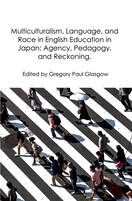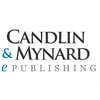Conclusion: Critical Multiculturalism in ELT in Japan: The Way Forward by Gregory Paul Glasgow
Abstract
In this concluding chapter, Glasgow writes "I have argued that despite Japan’s social construction as racially, ethnically, and linguistically homogeneous, its gradual but increasing diversity can no longer be ignored" (p. 382) and comments on the efforts to date to address deficiencies, along with some of the challenges and the barriers to progress. He summarizes some of the main themes of the volume and proposes some ideas that could have a direct impact on ELT classroom pedagogy and practices. He notes that "teachers need to recognize global and cultural trends and do right by their students" (p. 390) and hopes that the volume will make English language educators — both Japanese and non-Japanese — more aware of initiatives to promote multiculturalism.
About the Contributor
Gregory Paul Glasgow holds a Ph.D. in Applied Linguistics from the University of Queensland, Australia, and he is currently an Associate Professor at Kanda University of International Studies in Chiba Prefecture. He co-edited the volumes Agency in Language Policy and Planning: Critical Inquiries and Researching Agency in Language Policy and Planning (with Jeremie Bouchard), published by Routledge. His research draws on critical applied linguistics and social theory to examine issues in language-in-education policy, language management, and the politics of Global Englishes in TESOL. Dr. Glasgow is also interested in second language teacher education (SLTE), and ELT practices that promote multiculturalism, equity, intercultural awareness, and social justice.
Citation
Glasgow, G. P. (2023). Conclusion: Critical multiculturalism in ELT in Japan: The way forward. In G. P. Glasgow (Ed.), Multiculturalism, language, and race in English education in Japan: Agency, pedagogy, and reckoning (pp. 382–393). Candlin & Mynard ePublishing. https://doi.org/10.47908/26/c
In this concluding chapter, Glasgow writes "I have argued that despite Japan’s social construction as racially, ethnically, and linguistically homogeneous, its gradual but increasing diversity can no longer be ignored" (p. 382) and comments on the efforts to date to address deficiencies, along with some of the challenges and the barriers to progress. He summarizes some of the main themes of the volume and proposes some ideas that could have a direct impact on ELT classroom pedagogy and practices. He notes that "teachers need to recognize global and cultural trends and do right by their students" (p. 390) and hopes that the volume will make English language educators — both Japanese and non-Japanese — more aware of initiatives to promote multiculturalism.
About the Contributor
Gregory Paul Glasgow holds a Ph.D. in Applied Linguistics from the University of Queensland, Australia, and he is currently an Associate Professor at Kanda University of International Studies in Chiba Prefecture. He co-edited the volumes Agency in Language Policy and Planning: Critical Inquiries and Researching Agency in Language Policy and Planning (with Jeremie Bouchard), published by Routledge. His research draws on critical applied linguistics and social theory to examine issues in language-in-education policy, language management, and the politics of Global Englishes in TESOL. Dr. Glasgow is also interested in second language teacher education (SLTE), and ELT practices that promote multiculturalism, equity, intercultural awareness, and social justice.
Citation
Glasgow, G. P. (2023). Conclusion: Critical multiculturalism in ELT in Japan: The way forward. In G. P. Glasgow (Ed.), Multiculturalism, language, and race in English education in Japan: Agency, pedagogy, and reckoning (pp. 382–393). Candlin & Mynard ePublishing. https://doi.org/10.47908/26/c

Information About the Book
Title: Multiculturalism, Language, and Race in English Education in Japan: Agency, Pedagogy, and Reckoning
Editor: Gregory Paul Glasgow
Publication date: March 2023
Read more...
Title: Multiculturalism, Language, and Race in English Education in Japan: Agency, Pedagogy, and Reckoning
Editor: Gregory Paul Glasgow
Publication date: March 2023
Read more...
